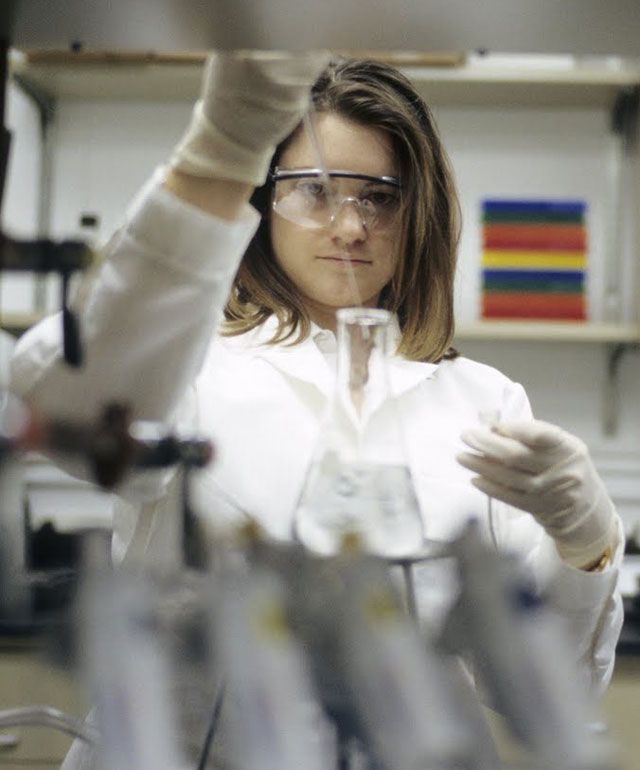Fueling our world while protecting our environment: It is perhaps the greatest challenge ever faced by our global society. Engineers studying energy typically focus on physics, chemistry and engineering systems to improve the acquisition, generation, delivery, usage and disposal of energy resources. On the other side of this issue, energy production and other industrial concerns create the need for engineers who creatively use biology, chemistry and systems research to prevent or solve problems involving water, air and soil purity. Lehigh's programs include courses in environmental science, chemical engineering, hydraulic engineering, mechanics, materials, pollution control and waste management.
Focus Areas
Environmental and energy engineers look to develop advanced, ecologically friendly energy sources and more efficient use, distribution and disposal of society's current energy and industrial materials. They also delve into process development and modeling related to issues of pollution detection, protection and mitigation.
Lehigh engineers interested in this area explore topics such as:
- Environmental biotechnology and chemistry
- Cutting-edge, non-polluting energy sources such as fuel cells and alternative fuels based on hydrogen, biodiesel and ethanol
- Aerodynamics and energy-conversion processes
- Air, soil and groundwater safety and restoration systems, including filtration and "clean air" technology
- Environmentally sound civil and industrial infrastructure development and related issues of risk, regulation and policy
Some labs across campus seek to track and eradicate pathogens that lurk in the ground and in the sources of drinking water for industrialized cities and developing nations alike. Others use expertise in nanosystems to remove arsenic from well water in villages across India and Bangladesh, and to eliminate pollutants from EPA Superfund sites here in the United States. Another way Lehigh researchers solve problems in this area is in the design of control systems for next-generation chemical and fusion reactors, and better design and utilization for fuel-based engines and industrial turbines.
Research and Resources
Lehigh supports a wealth of faculty expertise, graduate student projects, and research information and instrumentation available to students interested in these pursuits. Examples of major initiatives include the following:
- Lehigh's Energy Research Center is a multidisciplinary research group involving professional staff, faculty and students. As the focal point for energy-related research at Lehigh, the Center manages the University's energy research program and serves as the main energy research contact between the University, industry and government. Faculty, staff and students connected to the Center participate in many aspects of energy research, with major emphasis on energy conversion, power generation and environmental control.
- The Environmental Initiative supports a variety of research projects across all four colleges of Lehigh University. EI-affiliated faculty, students and staff conduct research in areas as varied as communications, earth science, economics, policy and geoenvironmental engineering.


